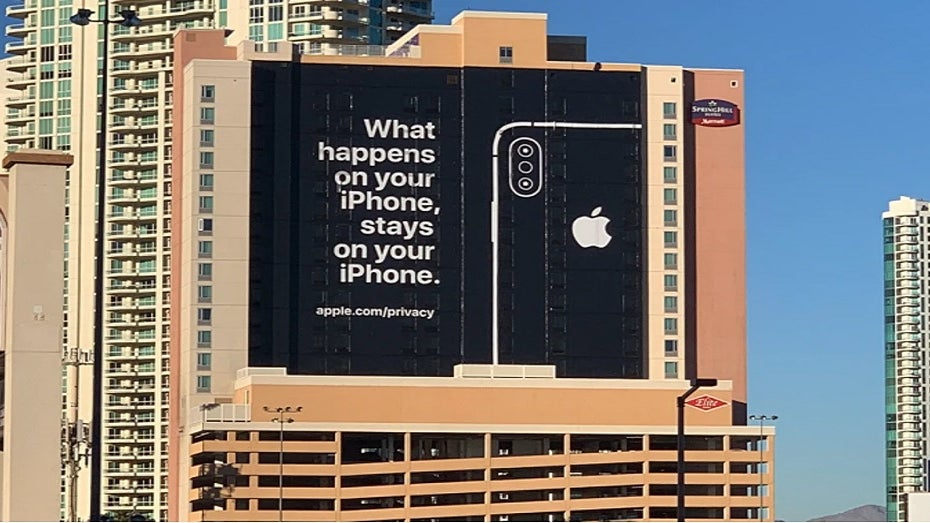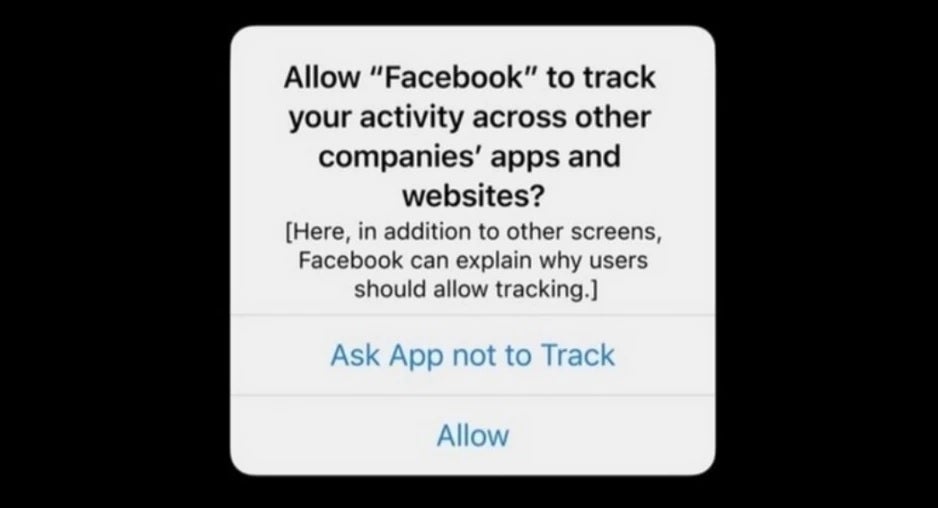A whopping 68% of Apple iPhone users are expected to opt-out of getting tracked for mobile ads

Any day now, Apple is expected to roll out its App Tracking Transparency feature. In an effort to keep iPhone users from being tracked by third party apps for the purposes of receiving online ads, once iOS 14.5 is disseminated, Apple will push out a prompt asking users whether they are giving a specific app permission to track them. You can choose to allow the tracking which means that you agree to be followed across the internet resulting in the receipt of online ads for products you've just viewed on your phone.
- The new iPhone 13: price, release date, features, and specs
32% of iOS users are estimated to give third-party apps permission to track them
If you would prefer not to be bombarded with online ads for that George Foreman grill you just were checking out at Amazon, simply tap on the choice that says "Ask App Not to Track." This is the feature that made Facebook go nuts and complain about its negative impact on small businesses. But it also is expected to have an outsized impact on Facebook, which collected nearly $85 billion in advertising related revenue last year.

Apple's App Tracking Transparency feature will soon be here asking iOS users to make a choice
While no one really knows exactly how many iPhone users will opt-in and allow themselves to be tracked, that number is expected to be low. Based on Apple's mobile identifier, mobile marketing firm AppsFlyer (via AdWeek) estimates that a median 32% of iPhone users will decide to give permission to allow themselves to be tracked. That figure was computed by analyzing 300 apps installed on 2,000 iOS devices.
Further analysis also suggests that well-liked apps will have a higher opt-in rate in the neighborhood of 40% Whether that means that consumers have more faith in the developers of their favorite mobile apps is not certain. Apple is working hard to prevent third party apps from fingerprinting users by collecting different data to create a unique individual based on that data.
The number of iPhone users estimated to give permission to being tracked varies depending on whom you ask. Dating app Bumble predicts that a range between 1% and 20% of iOS users want to continue receiving online advertisements.
Some apps have been fighting back by creating workarounds. Chinese app developers like TikTok parent ByteDance and Tencent are using a workaround called CAID that allegedly allows the developers to continue to serve up ads to individually targeted iOS users. Last month, Apple told the Financial Times that "The App Store terms and guidelines apply equally to all developers around the world, including Apple. Apps that are found to disregard the user’s choice will be rejected."
If opt-out rates are high and the number of iPhone users that don't want to be tracked exceeds expectations, advertising executives expect the cost of 1,000 ad impressions (known as the CPM in industry lingo) is expected to drop by as much as 50%. AdWeek says that mobile advertising in the U.S. is a $105 billion industry.
Interestingly, last month Facebook CEO Mark Zuckerberg, who was vehemently against the App Tracking Transparency feature, pulled a 180-degree reversal saying that it could end up being good for Facebook's business. Zuckerberg said that businesses having problems finding potential customers to advertise to because of ATT might decide to use Facebook's platform to find those customers.
Speaking of the social media giant, Facebook says that the App Tracking Transparency feature could result in a 7% drop in the company's revenue. That would work out to a $350 decline in the company's top line this year.
Apple has been promoting its privacy policies and late last year it required apps to include a Privacy Label on new apps getting listed on the App Store. In addition, existing apps had to add the label after being updated. The label shows the type of data that a particular app collects from users and how it might lead to identification of those users.
Follow us on Google News













Things that are NOT allowed:
To help keep our community safe and free from spam, we apply temporary limits to newly created accounts: